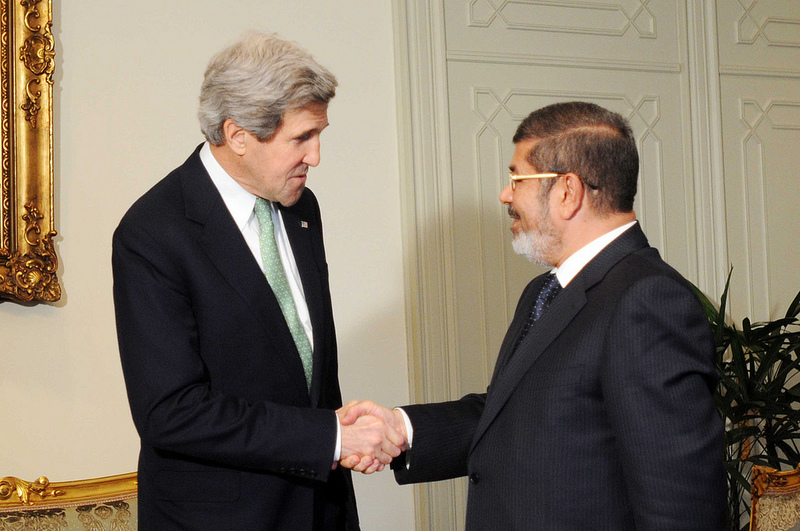
The Atlantic Council’s Middle East Peace and Security Initiative released a new issue brief today: “A Strategy for US Engagement in the Middle East: Contain Threats, Embrace Dignity."
In it Michele Dunne, director of the Rafik Hariri Center for the Middle East and Barry Pavel, director of the Brent Scowcroft Center on International Security evaluate challenges and opportunities for US interests in President Barack Obama’s second term, in light of profound changes in the Middle East and North Africa. They outline specific policy recommendations to contain and eliminate threats in the region, and to support the empowerment of individuals, building democratic institutions, and prosperity.
Policy recommendations made in the report fall under one of two categories: one, to contain and eliminate threats and, the other to embrace dignity. Policy recommendations specific to Egypt fall under the latter, with the report recommending that the US becomes the aggregator of international assistance to Egypt:
"Of all of the Arab states that are embarked on transitions from authoritarian rule, Egypt is by far the most important in terms of its regional influence and demonstration effect, for good or ill. The country now faces enormous economic and security challenges, which President Mohamed Morsi will be unable to tackle unless he forms a broader political consensus that includes secular as well as Islamist political groups, and Egypt receives substantial international financial assistance. While Obama was correct in saying that the United States cannot solve Egypt’s problems, there is much the United States can do to incentivize the Egyptians to do so themselves. As Egypt’s most important foreign ally, the United States should galvanize international donors (Europe, Gulf states, and international financial institutions) to provide grants, loans, and investments that the country needs to get the economy back on its feet, and to achieve the levels of growth required to generate sufficient jobs. As the organizer of such large-scale assistance, the United States can show its support (which many Egyptians still doubt) for Egypt’s efforts to become a democracy, while also regaining some influence within the country. Although international assistance need not be accompanied by offensive public conditionality, donors should agree among themselves to provide assistance in tranches, and to deliver assistance only if Egypt restores a clear path to democracy, adopts reasonable economic policies, and acts responsibly in foreign affairs.”
Read the full report here.
Photo: US Department of State
Image: Morsi%20Kerry%20US%20State%20Dept.jpg
